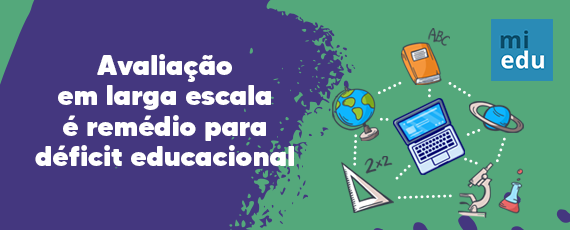Como a tecnologia muda as habilidades que precisamos aprender
A while back, Bill Keller of The New York Timesstirred up a hornet’s nest when he wrote a columnworrying that joining Facebook would have a debilitating effect on his 13 year-old daughter’s intellectual faculties. Technology advocates,including me, pounced.
Now there are new studies out that seem to support his argument. One shows that using search enginesdecreases our memory and another suggests thatGPS may atrophy our brains. Discovery magazine has collected a half-dozen similar examples on its site.
I think the question itself is misplaced. Clearly, we use technology to do things for us that we no longer are doing for ourselves and that means certain abilities degenerate. Yet, it also means we are freeing up cognitive energy for other things. So what’s really important is not the skills we are losing but those that we need to develop.
What Makes An Expert?
We come into the world not knowing much. We can’t speak, eat by ourselves or use even the most basic household objects. Eventually, we start picking up patterns from our environment. We start babbling phonemes (elementary units of language) and then begin to combine them into words, the words into sentences and so on.
We learn virtually everything that way, by combining low order patterns to form higher order ones. Once we are able to understand language, we can absorb the patterns of others, learning values from our parents, social norms on the playground and eventually all the other skills that make up a modern life.
Experts define themselves by learning the highest order patterns through what Anders Ericsson, callsdeliberate practice. For example, a normal person can learn to hit a golf ball competently in a few lessons, but pro golfers continuously work to master even the most miniscule patterns inherent to the game.
In much the same way, surgeons spend years learning the patterns of the human body and experienced firemen become familiar with the patterns of burning buildings. An expert hasinternalized the patterns of his chosen field and can act without thought or deliberation, but can operate seemingly by instinct.
How Machines Are Taking Over
The fear that new technologies lessen our ability to function is nothing new. In Plato’s dialogue, The Phaedrus, Socrates worried that writing would diminish our ability to engage in conversation. Certainly, machines have hampered our ability to do physical labor and have contributed to obesity.
What makes the new breed of machines truly different is that they are able to recognize patternsand learn in much the same way we do. Researchers at IBM taught their algorithm to translate between French and English by exposing it to proceedings of the Canadian Parliament. IBM recently sent its Watson computer to medical school.
Yet computers can absorb material much faster than we can. In How To Create A Mind, Ray Kurzweil estimates that the human brain can recognize 100,000 patterns, In its first year as a med student, Watson 600,000 pieces of medical evidence, two million pages of text and 1.5 million patient records.
Much like in the old fable of John Henry, we are beginning to realize that even our most ardent efforts will fall short. Just as we can’t match the strength of a locomotive or the memory of a library, even the patterns learned in a lifetime of experience pale in comparison to the abilities that our new machines are beginning to acquire.
Why Marcus Welby Was Inefficient
If you find yourself unable to sleep and start surfing channels in the triple digits, you may come across some old reruns of Marcus Welby MD, a popular medical drama from the early 70’s. It doesn’t look like anything you’ll see in a hospital today.
The first thing you’ll notice is how much medicine has changed. You don’t see Dr. Welby ordering a barrage of tests or asking patients what kind of insurance they have. In fact, he spends most of his time talking and getting to know each of his patients personally. He was, by today’s standards, enormously inefficient.
In the decades since, we have learned to be efficiency driven machines. We’re more data focused, evidence based and rational. Mostly, we see this as an improvement. After all, a doctor who treats more patients can cure more people. However, we’ve lost something too and letting machines take over gives us the opportunity to get it back.
As Sandy Pentland, a big data expert at MIT and one of the most cited computer scientists in the world, put it in a recent interview, “We teach people that everything that matters happens between your ears when in fact it actually happens between people.”
Skills For A New Age Of Inefficiency and Imprecision
The truth is that technology makes us both dumber and smarter. In our technological age, we use machines to do many things we used to do for ourselves, so it shouldn’t be surprising that we’re getting worse at performing certain tasks. We have been engineered by evolution to conserve our limited capacities by adapting to our environment.
We can, if we want, choose to maintain those skills by going to the gym to replace physical work or performing mental exercises on Lumosity to sharpen our mental faculties, but what should really concern us is building the skills we need for the the future.
Social Skills: Richard Florida argues that, as our economy is becoming more service oriented, we need to invest in social skills and points to studies that show that such investments can earn a handsome return.
Teamwork: While computers excel at problem solving, they are less able to decide which problems are important to solve or what approach can best be applied. Discovering “what is” and asking “what if” are two fundamentally different skills.
As Scott Page, an economist at the University of Michigan has found in hisresearch, complex questions are often best answered by diverse teams rather than by homogenous groups or individuals, even if the latter are more talented.
The New Math: As I’ve argued before, our future won’t be made as much as it will be designed and, for now at least, algorithms don’t design themselves.
Valdis Krebs of Orgnet points out that “Universities are still stuck on teaching 20th century math for building things rather than 21st century math for understanding things” and suggests that curriculums focus less on the mathematics of engineering (i.e. calculus) and more on the mathematics of patterns (i.e. set theory, graph theory, etc.).
The Power To Choose
What’s most important is that technology gives us more power to choose. We are no longer stuck on the farm or in the factory, but are more free than ever to pursue our own passion and purpose.
For some, that will mean greater devotion to family and community, others may want to take joy in lost arts that have long outlived their usefulness and still others may devote greater time to matters of the soul. As we free ourselves from the shackles of efficiency, we are more able to seek out value.
The reality of modern life is that we are all uploading old patterns to the cloud to make room for new ones. The choices we make are our own. We’re as smart as we want to be.
Fonte: Forbes


